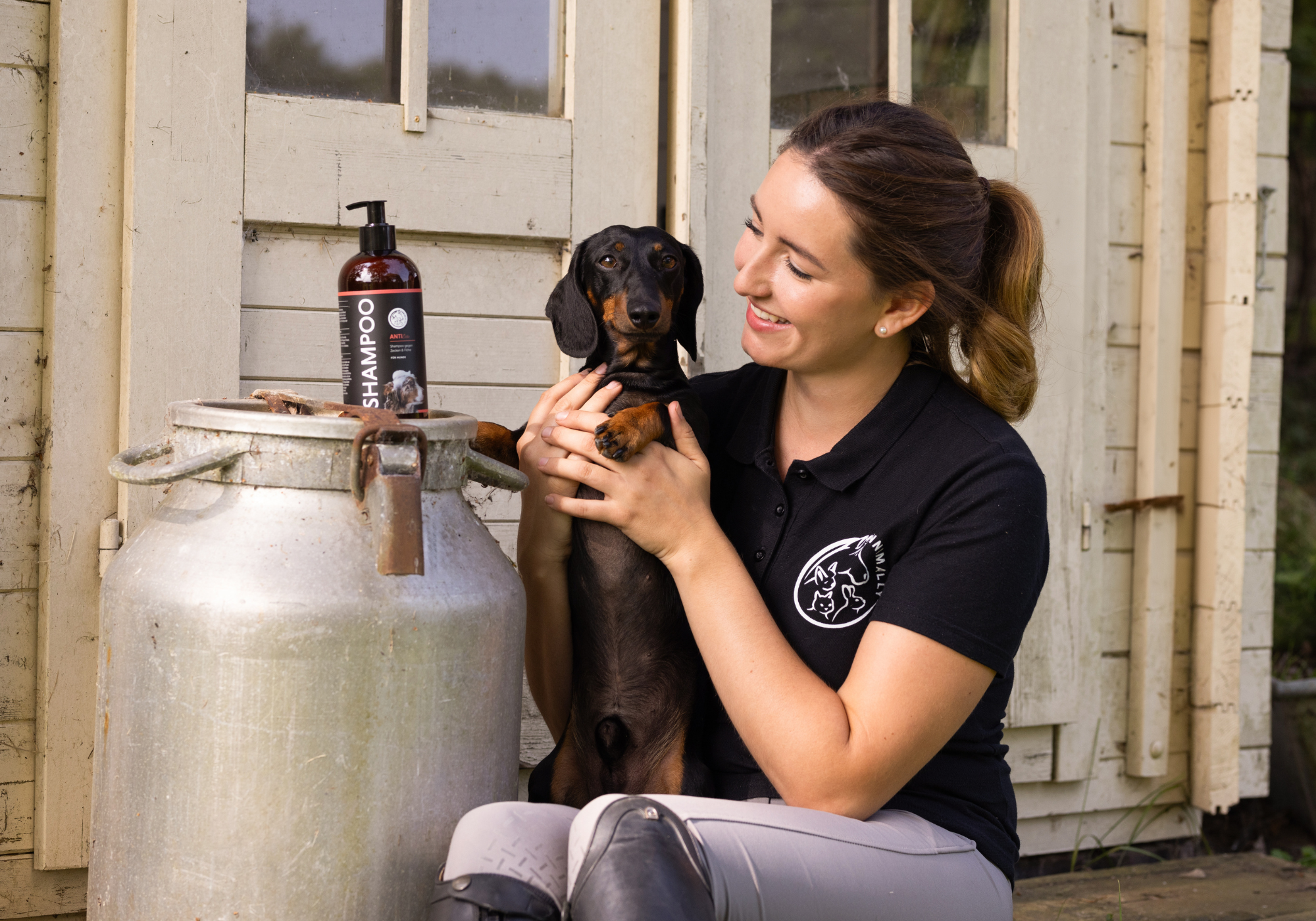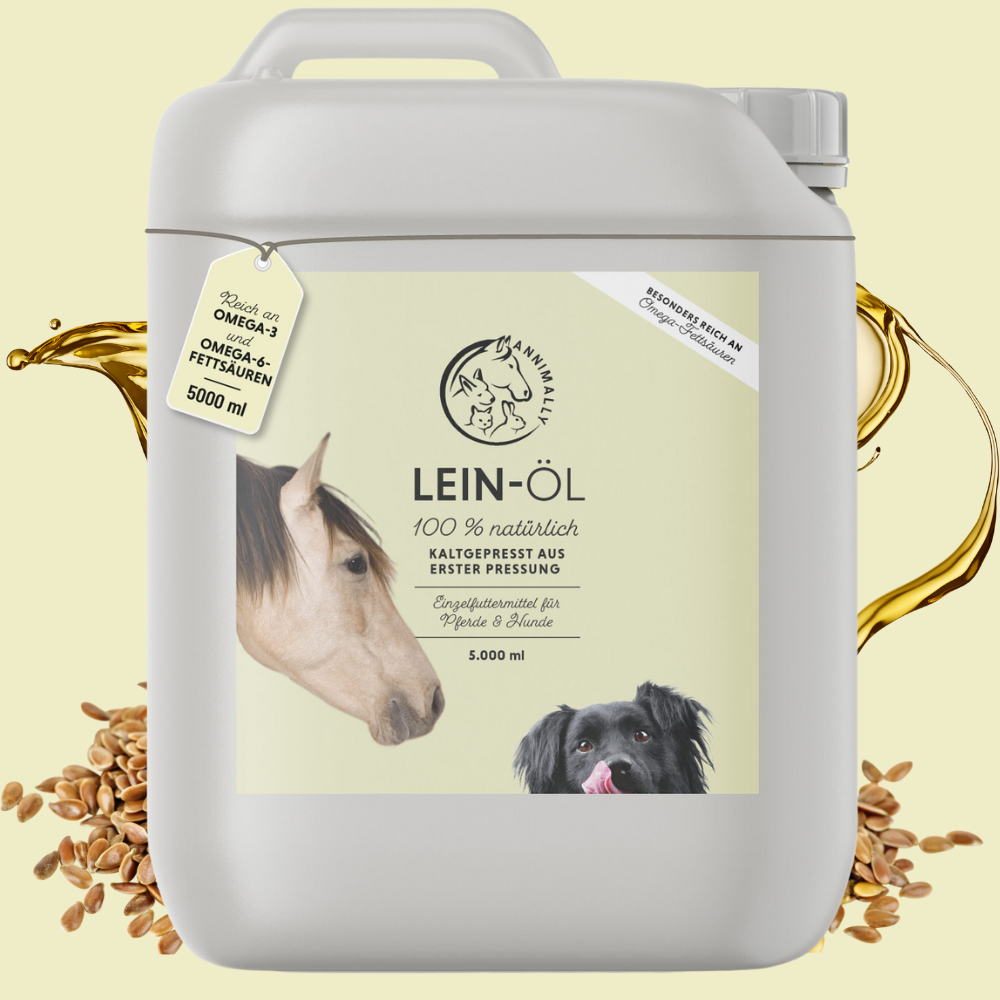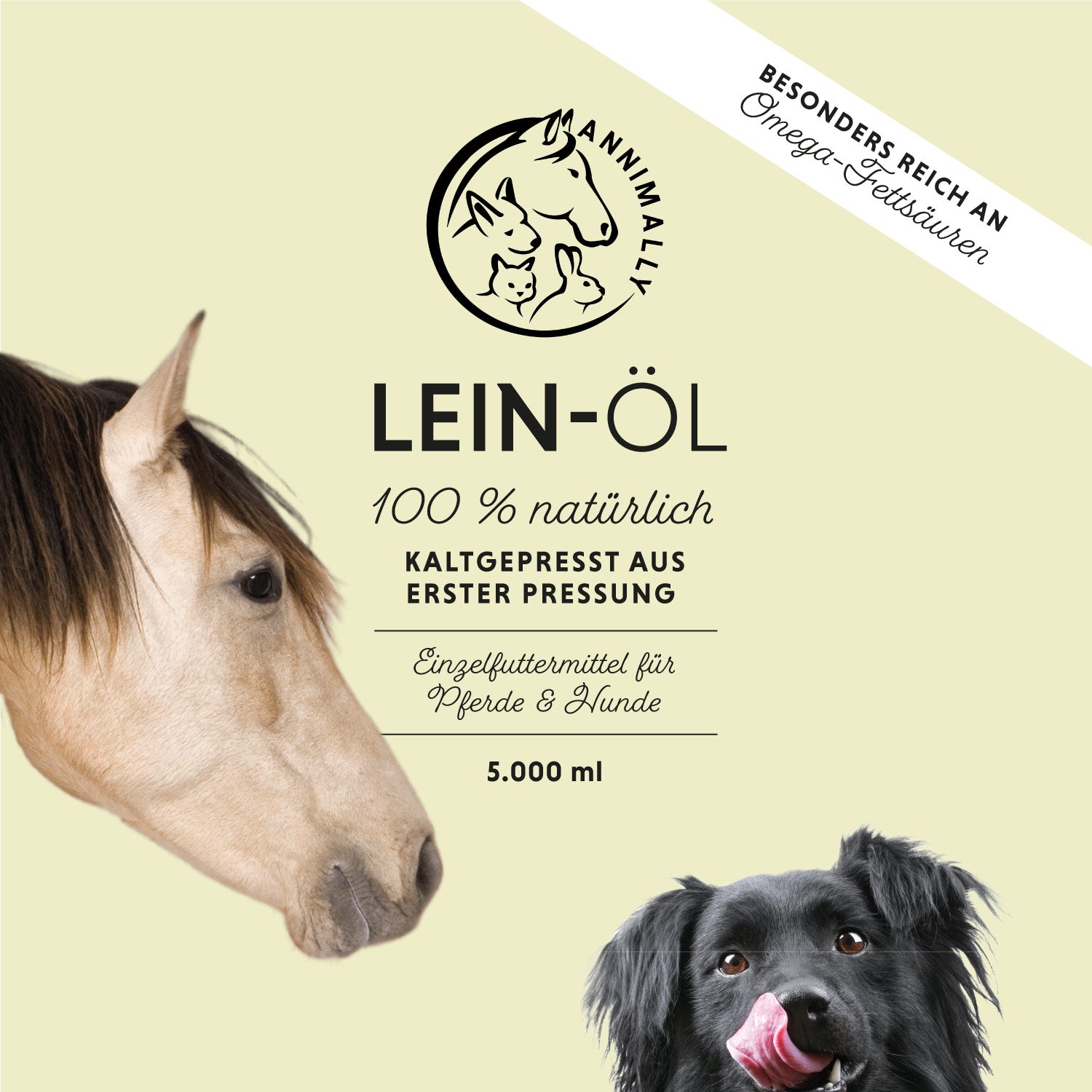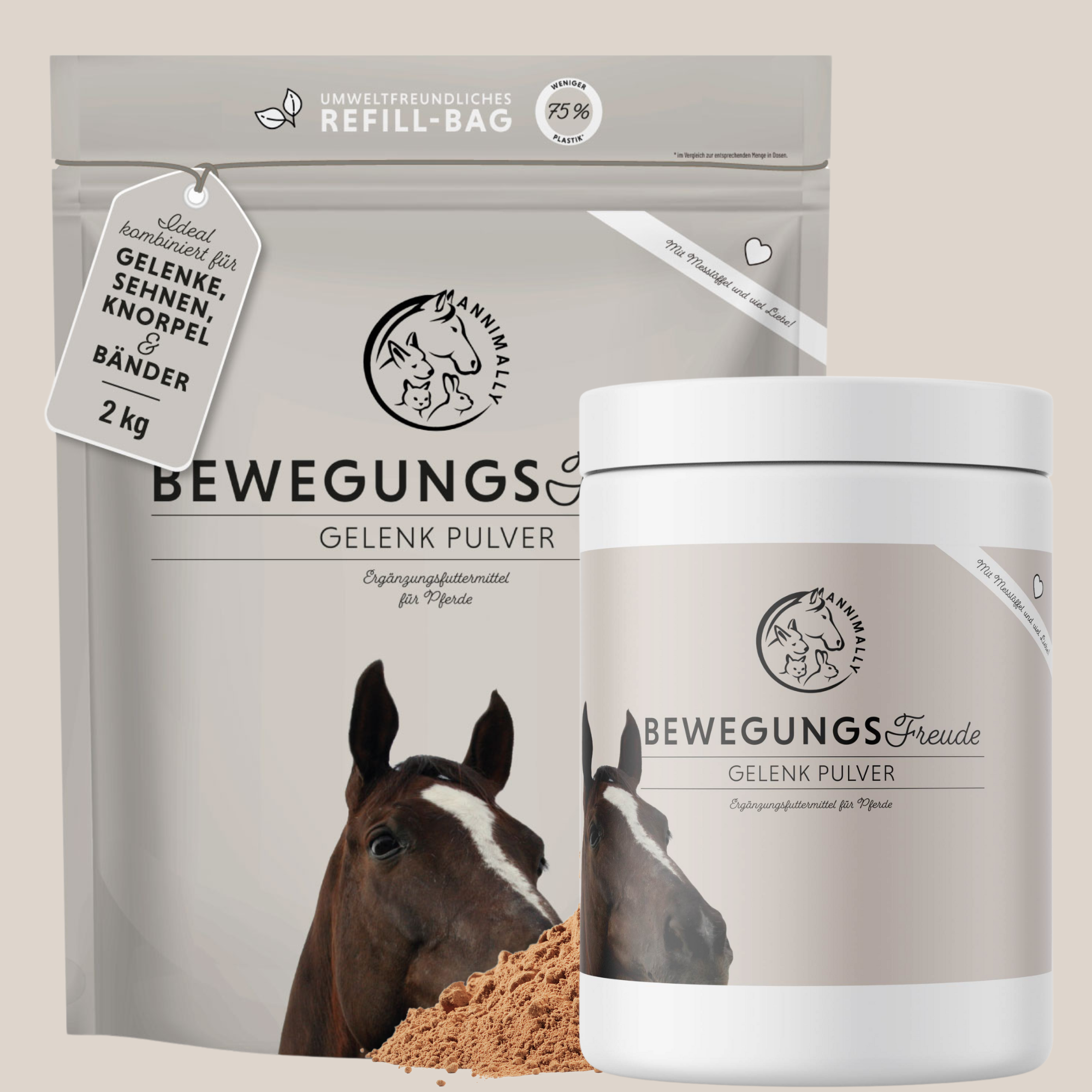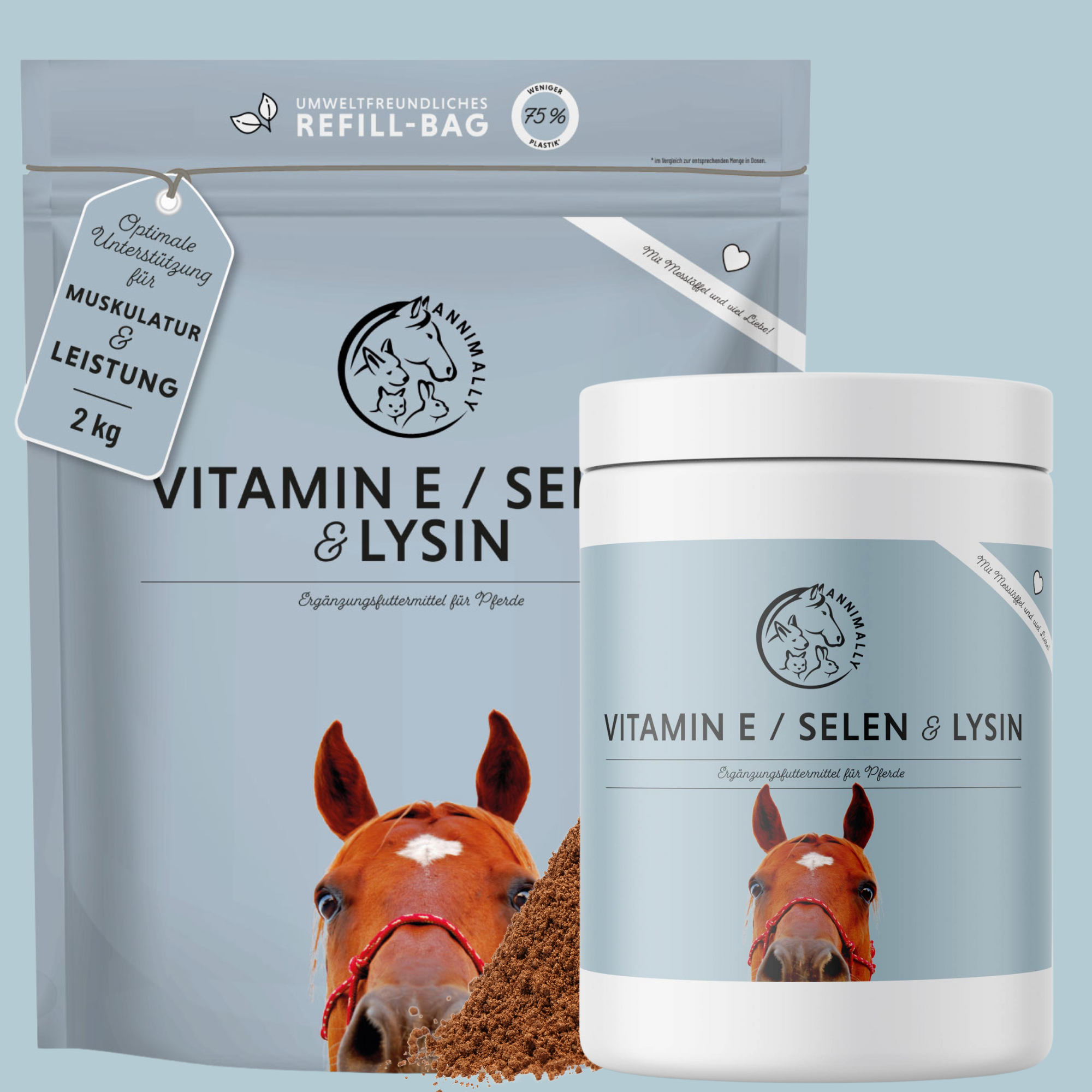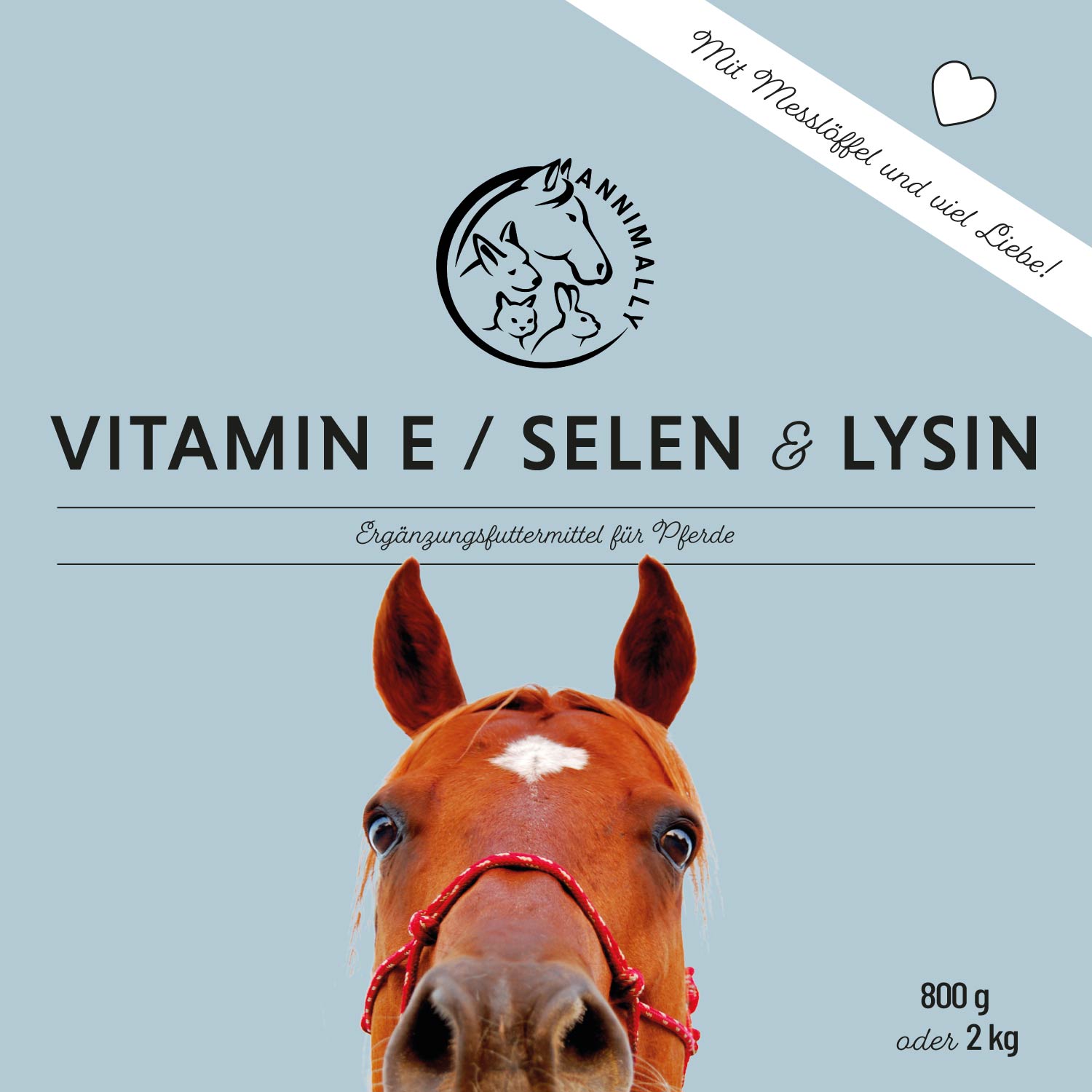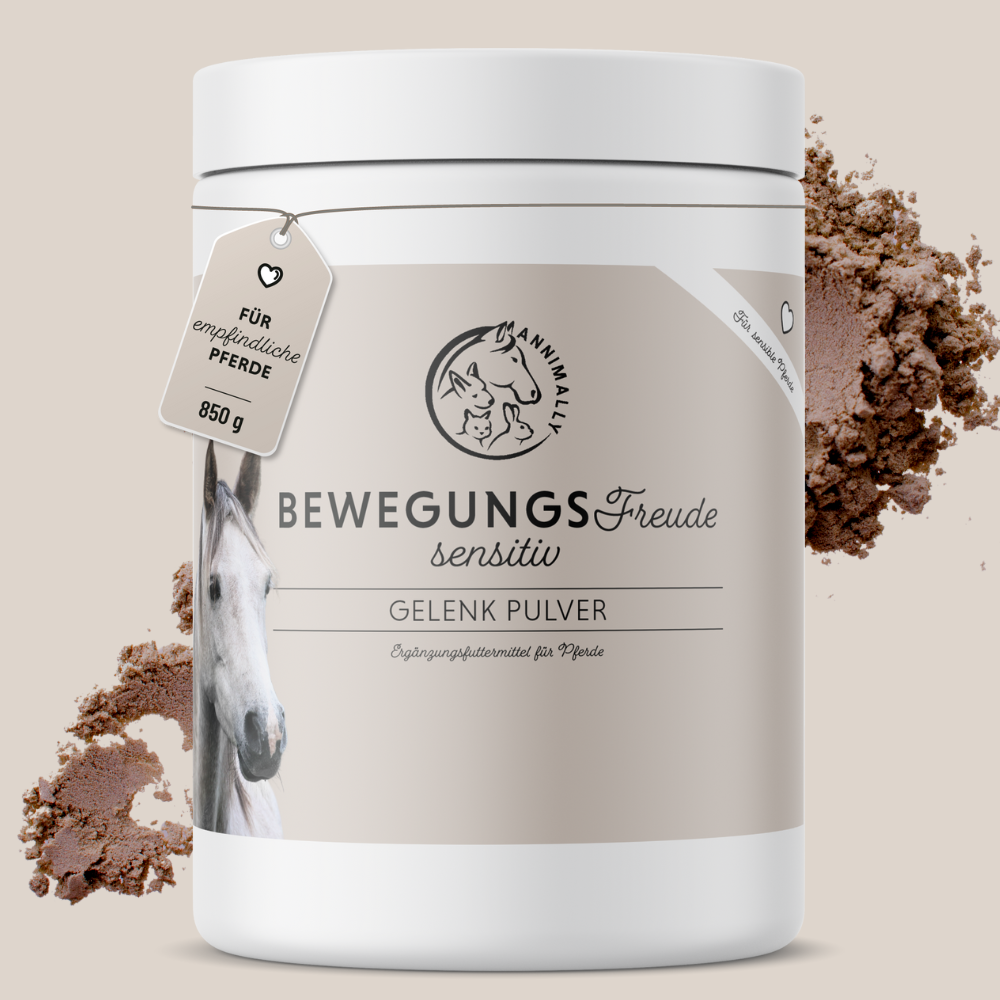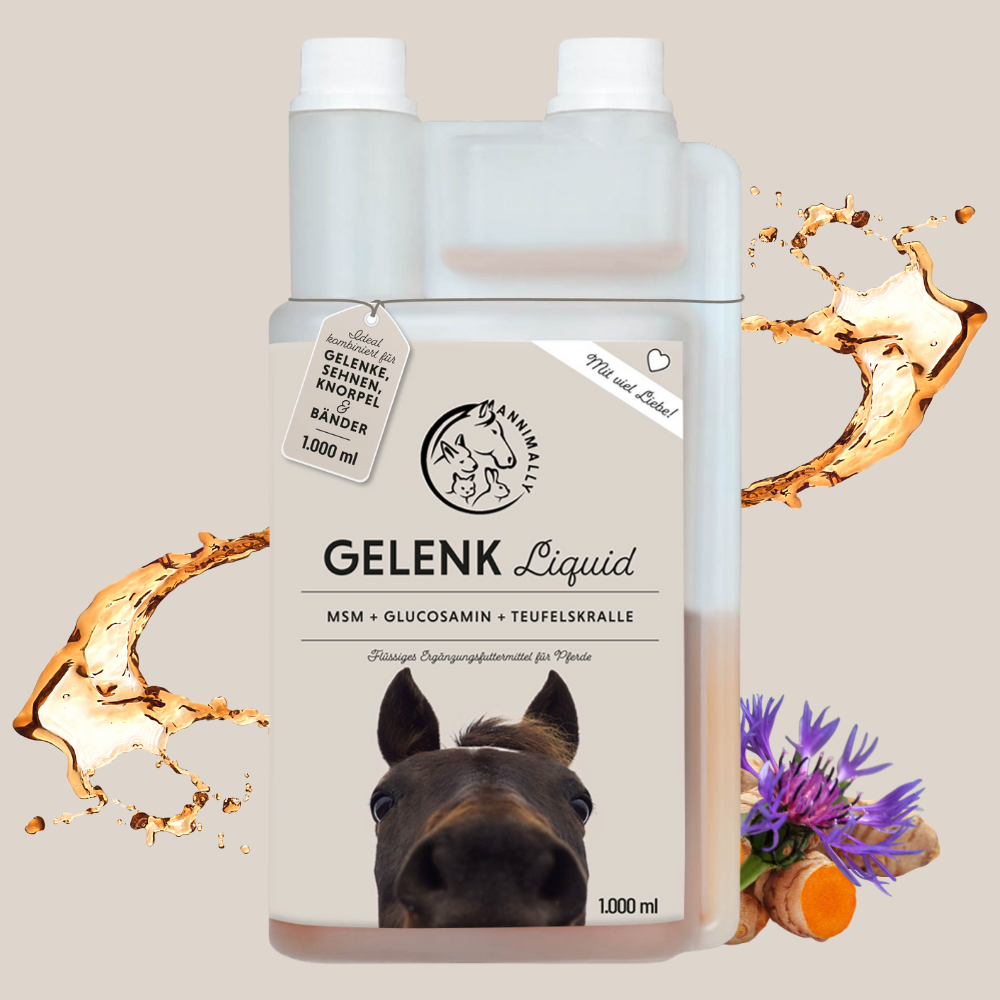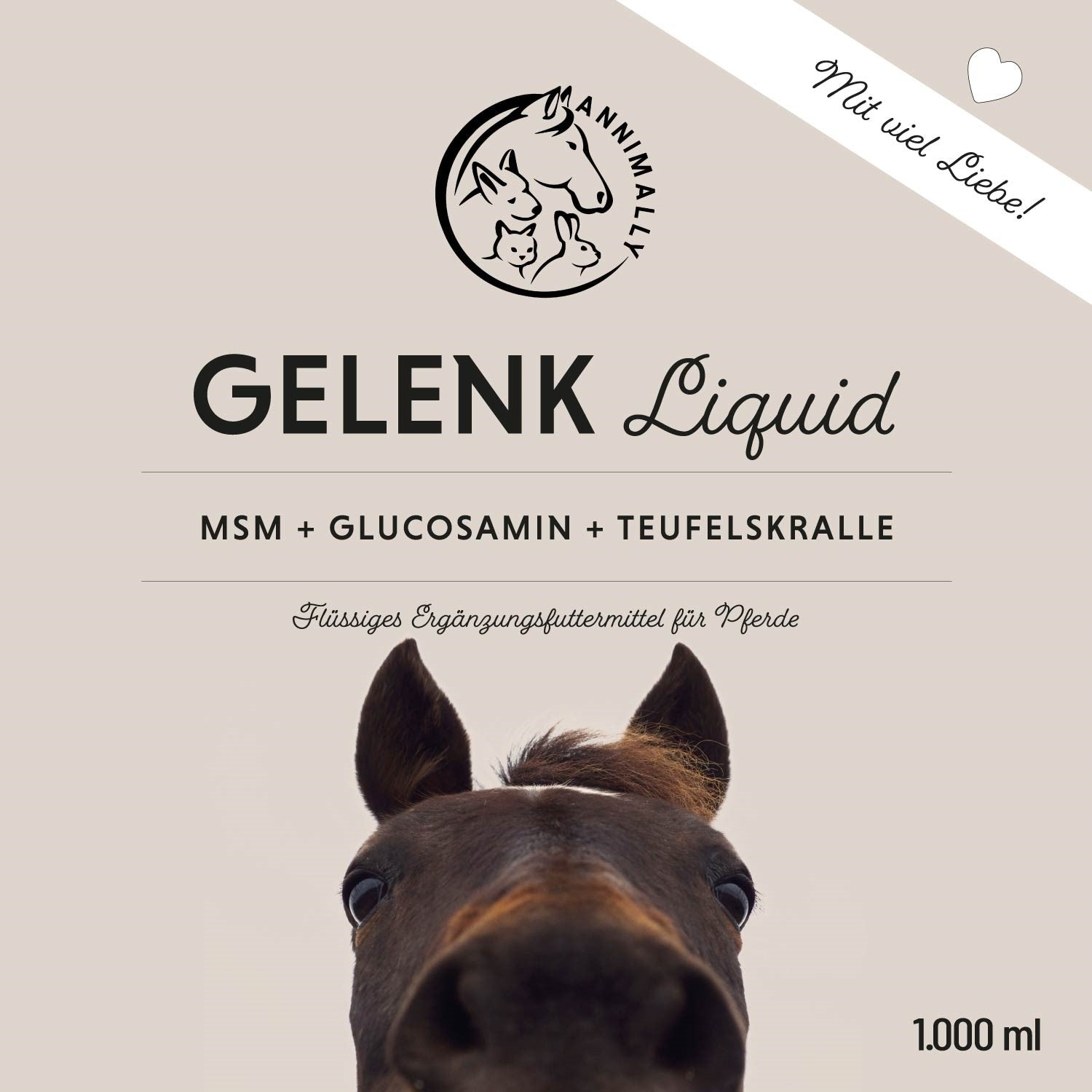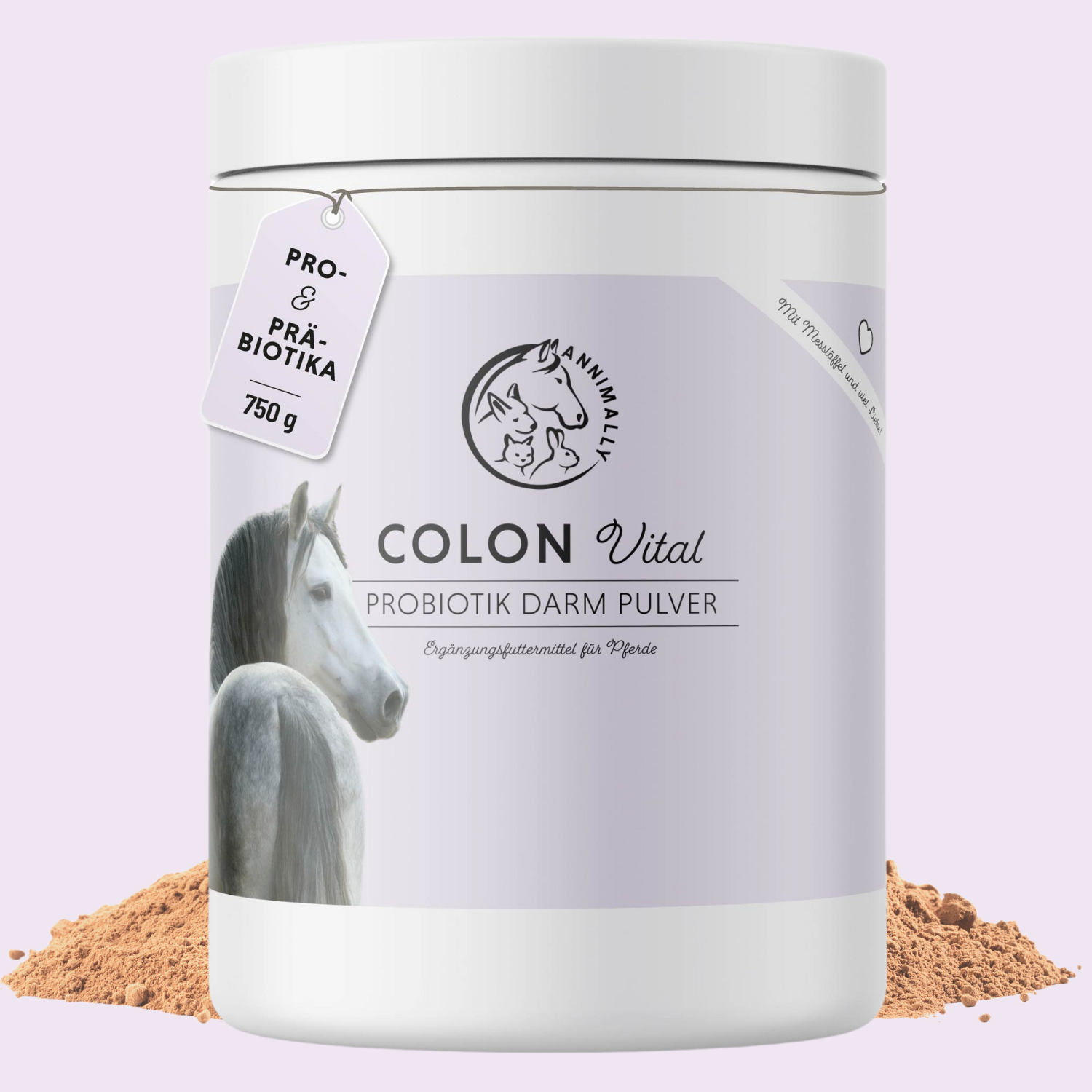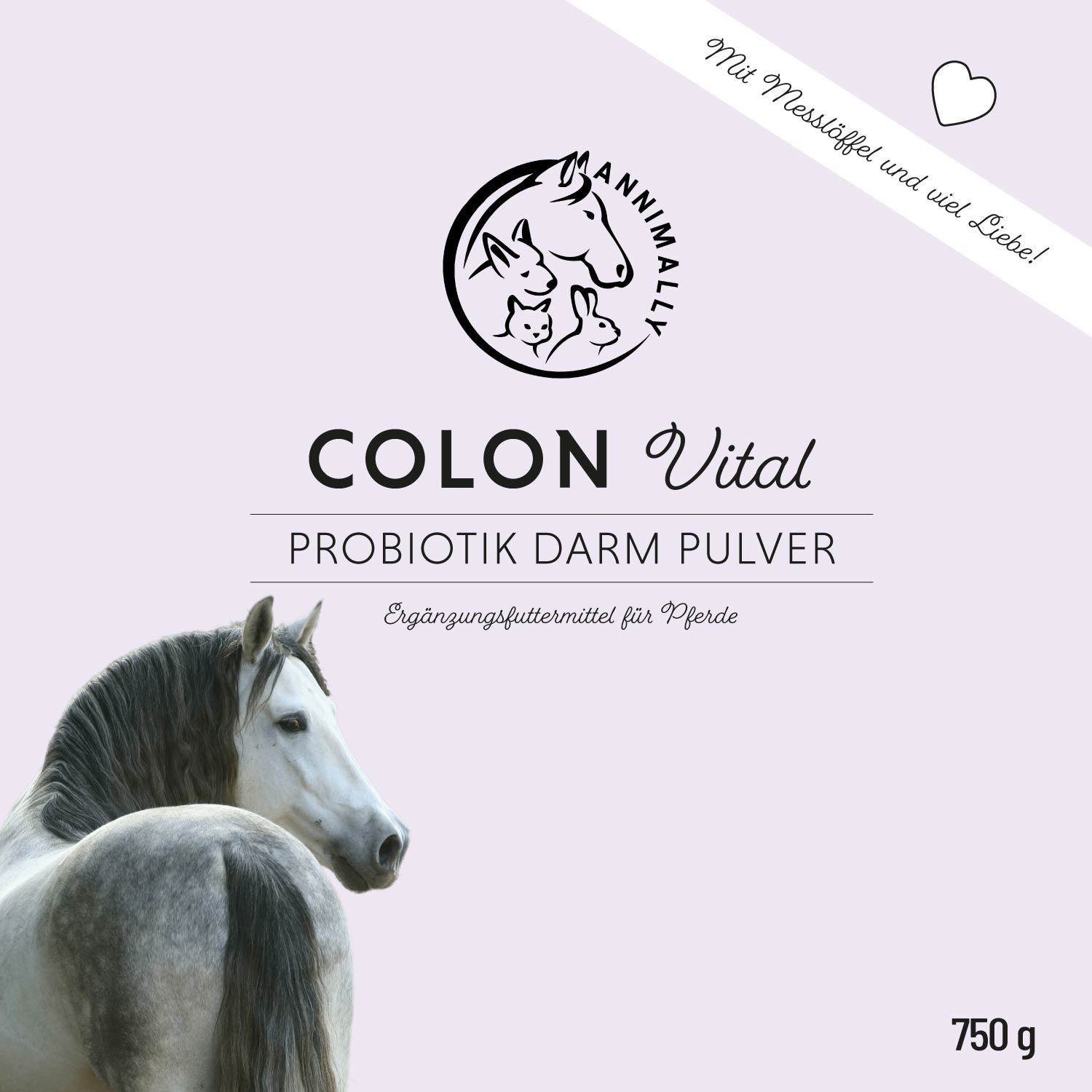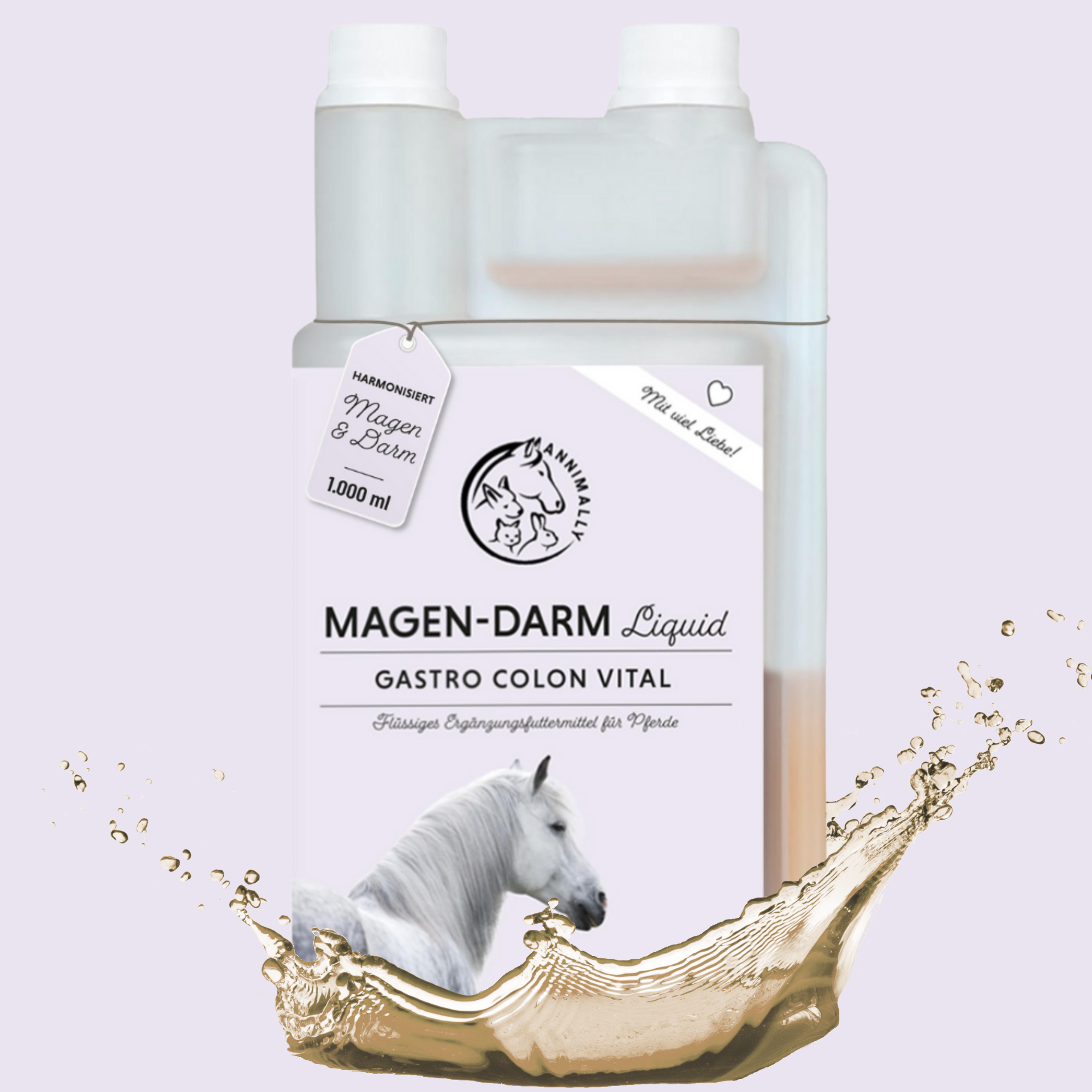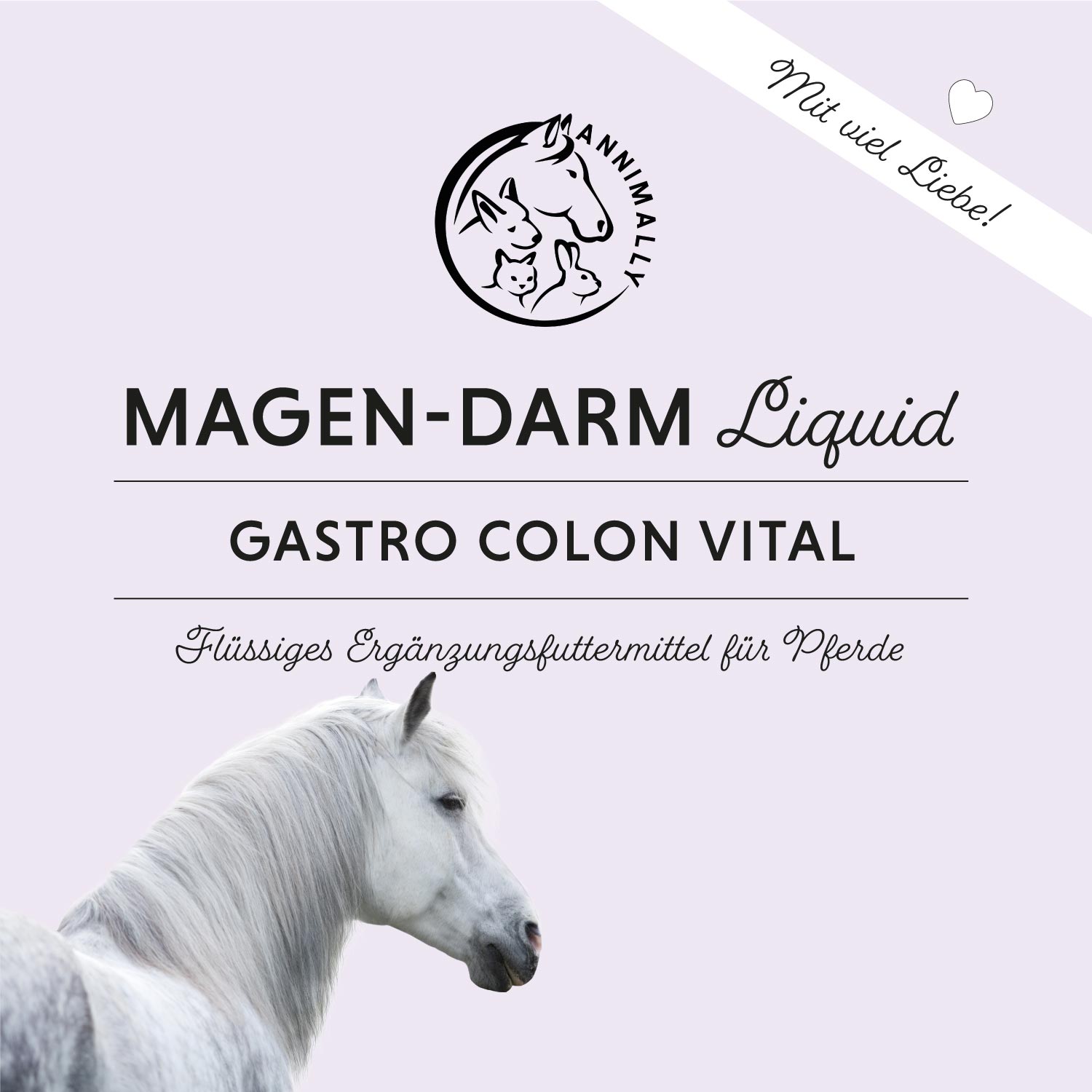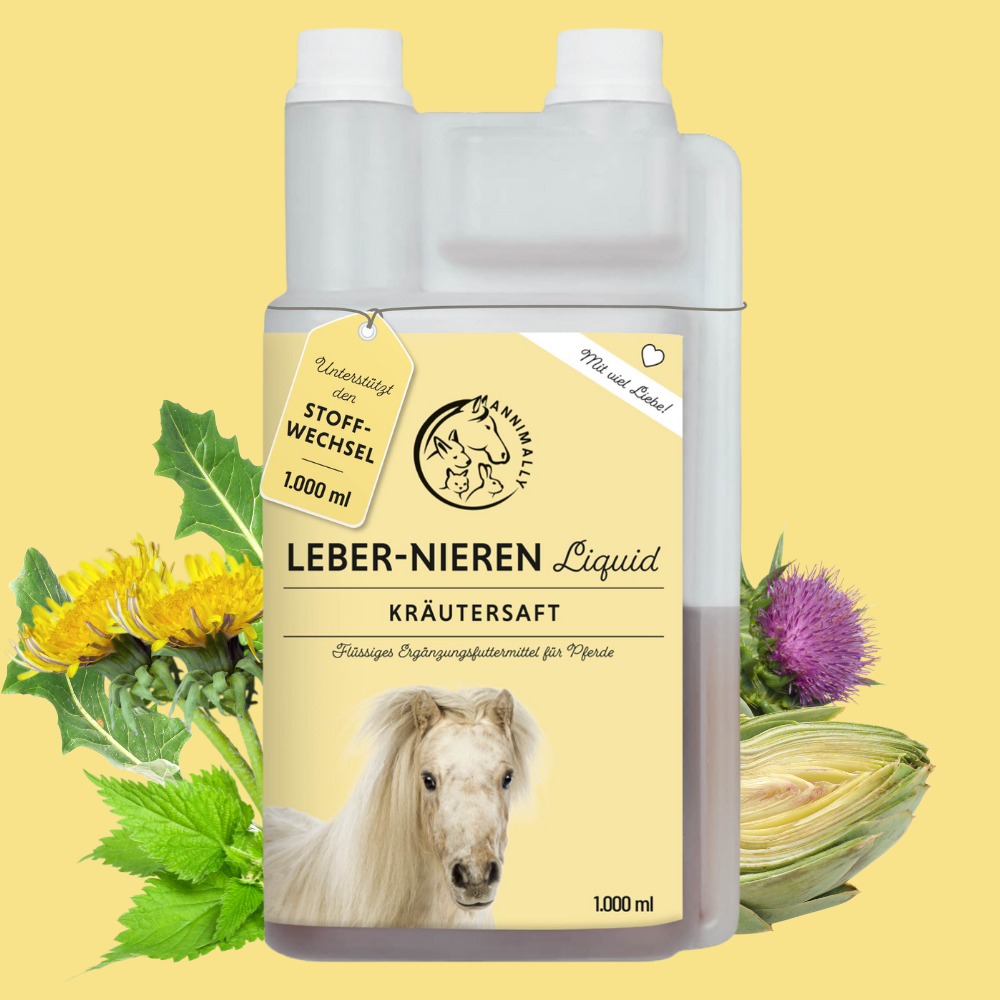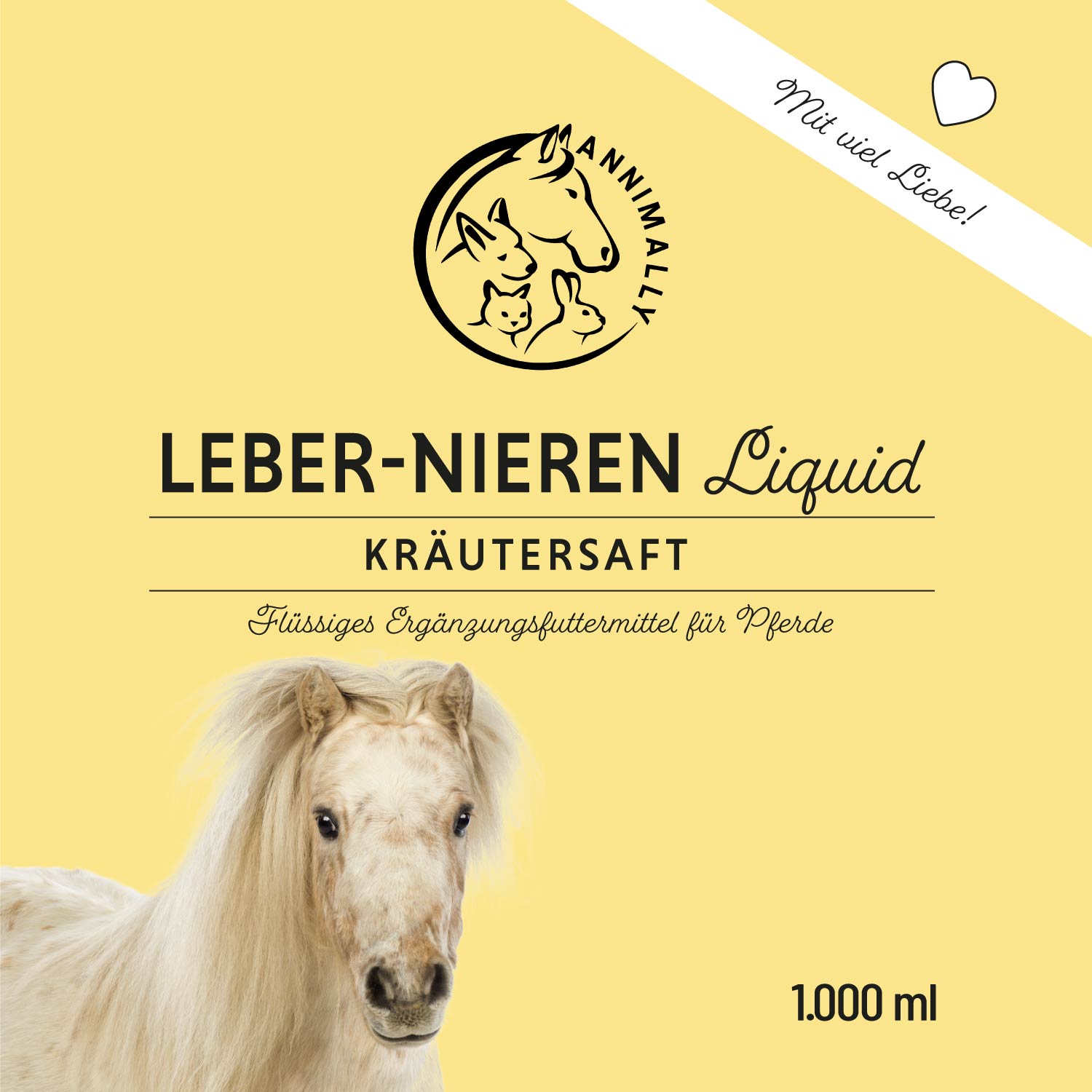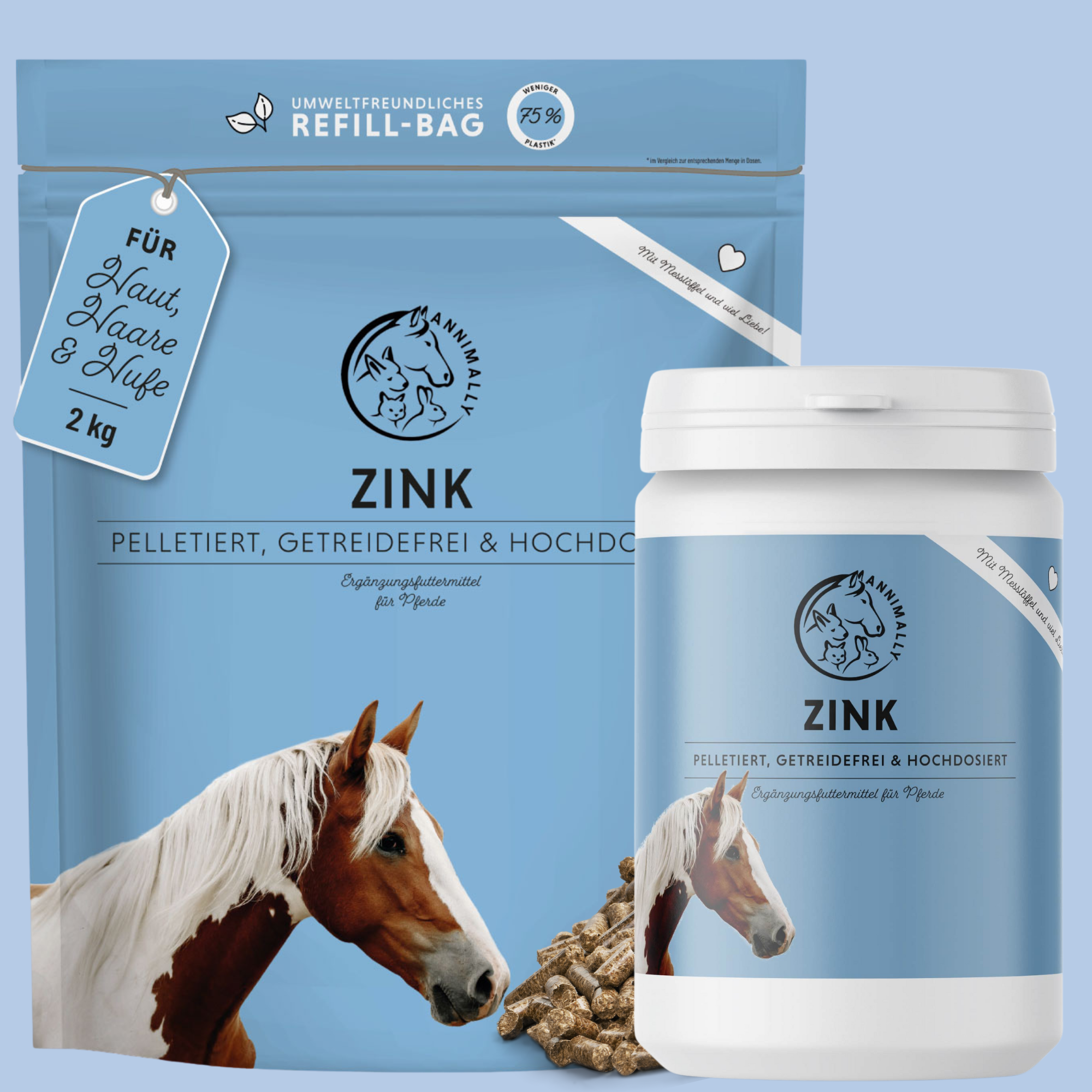Linseed oil for horses: The natural power source for health, coat shine and energy
If you're looking for a natural way to support your horse's health, energy, and coat care, linseed oil is just what you need. This vegetable oil from the linseed (Linum usitatissimum) is considered a true superfood in horse feed – not only because of its high omega-3 fatty acid content, but also because of its positive effects on digestion, skin, coat, and the immune system.
In this article, you'll learn everything about the application, correct dosage, important properties, and tips on linseed oil for horses—including information on additives, products, and why dogs and cats can also benefit from it.
What is linseed oil?
Linseed oil is extracted from the seeds of the flax plant—botanically known as Linum usitatissimum. It is a cold-pressed feed used as a supplement to the daily diet of horses.
Due to its high-quality unsaturated fatty acids, especially alpha-linolenic acid (a form of omega-3 fatty acids), linseed oil is one of the best plant-based energy sources for your horse.
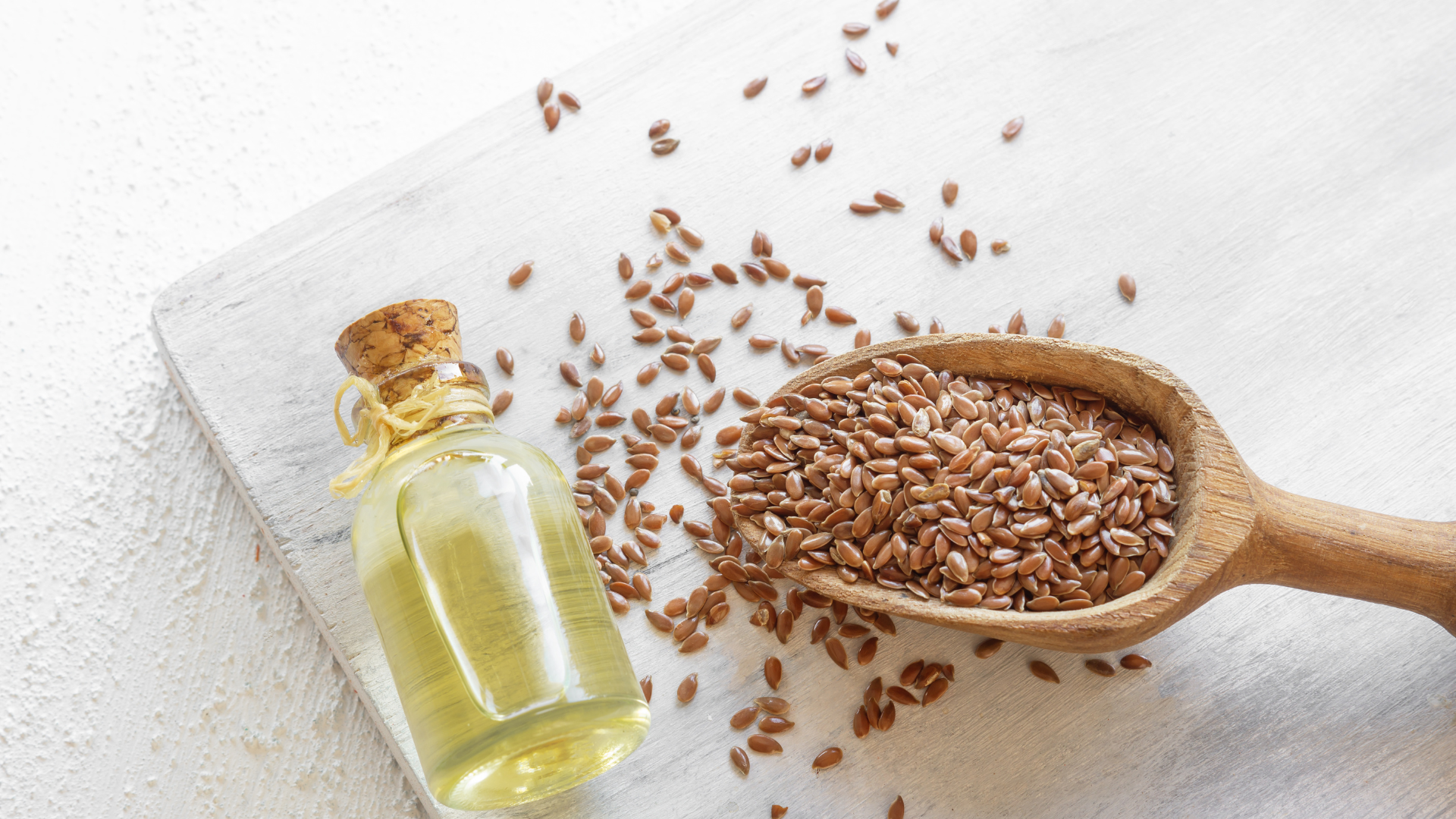
Why is linseed oil so healthy for horses?
The omega-3 fatty acids it contains are essential components of a healthy diet – they cannot be produced by the body itself. Especially in relation to the usually already abundant omega-6 fatty acids, linseed oil has anti-inflammatory effects, strengthens the immune system, promotes muscle building and regeneration, and supports healthy liver function.
Advantages at a glance:
-
Coat care and skin health
-
Support during coat change
-
Improve digestion
-
Healthy liver
-
Strengthening the immune system
-
Promotes muscle building
-
High-quality energy source
-
Supports weight maintenance in horses that are difficult to feed
-
Positive effect on fitness
Linseed oil and the coat: For shiny results
A shiny coat is often the first visible sign of a good diet. Linseed oil for horses provides the necessary fatty acids to nourish the coat from within. Especially during the shedding period, linseed oil can provide targeted support for your horse's skin and immune system.
Tip: Observe the coat structure after a few weeks of adding linseed oil – you will see the difference!
Linseed oil & digestion: Gentle help for the intestines
Thanks to its mucilage content, linseed oil for horses has a soothing effect on the stomach and intestines. For horses with sensitive digestion, it can help regulate the gastrointestinal tract and make feed more digestible. This is a clear advantage, especially for older horses or animals with digestive problems.
Omega-3 fatty acids versus Omega-6 fatty acids – the right ratio counts
In conventional horse feeding, the ratio between omega-3 and omega-6 fatty acids is often neglected. Too much grain or corn results in an excess of omega-6, which can lead to inflammatory processes in the body. Linseed oil balances this ratio and, with its high content of alpha-linolenic acid, provides more balance.
How much linseed oil does your horse need?
The correct dosage depends on your horse's weight, age, and activity level. Here's a rough guideline:
-
Leisure horses: approx. 50–100 ml linseed oil per day
-
Sport horses: up to 150 ml daily
-
Ponies: correspondingly less (20–60 ml)
Important: Increase the amount slowly over several days to avoid overtaxing your digestive system. A dosing pump or a bottle with a good spout makes use particularly easy and clean.
Application and feeding
Linseed oil is best added directly to concentrate or mash. Most horses readily accept it—especially if the oil is fresh and of good quality.
When storing, pay attention to:
-
Store in a cool, dark place
-
Once opened, use within a few weeks if possible
-
Seal airtight (canister or bottle with screw cap)
Vitamin E – important in combination with linseed oil
A high content of unsaturated fatty acids increases the need for vitamin E. This fat-soluble vitamin protects cells and prevents oxidative processes in the body. If you feed linseed oil for an extended period, you should therefore ensure adequate vitamin E intake—either through the mineral feed or as a separate supplement.
Flaxseed, linseed or linseed oil?
You may be wondering whether you can feed flaxseed or linseed instead of oil. Yes, but with restrictions. Whole flaxseeds are difficult to digest and must be either ground or cooked. Linseed oil, on the other hand, is immediately available, highly concentrated, and provides the desired fatty acids in their pure form – without any detours.
Which linseed oil is the best?
When purchasing, look for cold-pressed, food-grade virgin linseed oil. Some manufacturers offer special products for animals—some with a convenient dosing pump, in the right amount, and in various sizes (e.g., 1-liter bottles, 5-liter or 10-liter canisters).
Popular selection criteria:
-
Origin of the seed
-
Pressing process
-
Freshness (date of manufacture)
-
Additives (preferably none)
-
Price-performance offer
Suitable for all animals?
Not only horses, but also dogs and cats benefit from linseed oil – albeit in appropriate dosages. Especially in dogs, linseed oil supports the coat, the immune system, and digestion.
However, with cats you should consult your veterinarian, as not all oils are well tolerated.
Conclusion: Linseed oil – a real all-rounder for your horse
Whether to support the coat change, as an energy source, to promote skin and digestion, or as an anti-inflammatory supplement – linseed oil for horses is a true natural talent. With its unique composition of omega-3, alpha-linolenic acid, unsaturated fatty acids, and vitamin E, it is an indispensable component in modern horse nutrition.
With the right product, a fresh offer, the right quantity and some proven Tips Your horse will benefit all around. Try it out – your horse will thank you!


